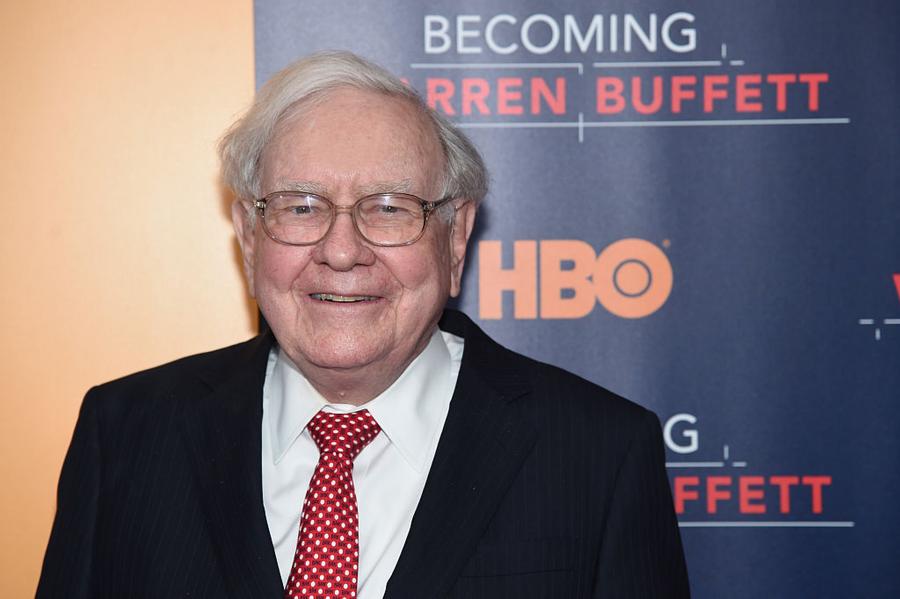In 2007, Warren Buffett made a bet with the hedge fund Protege Partners that the S&P 500 would perform better than a handful of selected hedge funds over the following 10 years. At the end of 2017, he collected the $1 million when he won the bet against the hedge fund. He shared the outcome of this long term bet in his annual letter to shareholders.
Buffett and the hedge fund each put $320,000 into a zero-coupon Treasury bond. This is considered a safe and conservative investment. The kind a lay person such as myself would make (for far less) and then let sit and forget about it until years later. They estimated that the bond would be worth $1 million by 2018. However, according to Buffett, "strange things took place in the bond market" that caused the cash returns on S&P 500 dividends to be nearly triple the yield on the bond. So in 2012, they sold the bond and bought Berkshire Hathaway class B shares because the bond's value rose faster than they expected, and let's face it, Berkshire stocks also can be considered a safe investment due to their great increase in value over the years.

Jamie McCarthy/Getty Images
What Buffett learned from this exercise is that no asset class is risk free. Not even the most conservative U.S. Treasury bonds.
"'Risk' is the possibility that this objective won't be attained. By that standard, purportedly 'risk-free' long-term bonds in 2012 were a far riskier investment than a long-term investment in common stocks. At that time, even a 1% annual rate of inflation between 2012 and 2017 would have decreased the purchasing-power of the government bond that Protégé and I sold."
The 11,200 shares of Berkshire Hathaway they bought in 2012 grew to be worth $2.22 million and that money was donated to the Omaha charity Girls Inc.
Buffett also noted that stocks are definitely riskier than bonds. However, he said the 60/40 stock/bond portfolio is not the best way to consider risk.
"It is a terrible mistake for investors with long-term horizons – among them, pension funds, college endowments and savings-minded individuals – to measure their investment 'risk' by their portfolio's ratio of bonds to stocks. Often, high-grade bonds in an investment portfolio increase its risk."
Buffett made the bet as a protest against the high fees hedge funds charge. Buffett betted that investors could get more for their money by choosing a cheap stock index fund.
"During the ten-year bet, the 200-plus hedge-fund managers that were involved almost certainly made tens of thousands of buy and sell decisions … Protégé and I, meanwhile, leaning neither on research, insights nor brilliance, made only one investment decision during the ten years."
That definitely seems like a pearl of wisdom from the Oracle of Omaha that anyone can follow!
/2017/02/GettyImages-632125710.jpg)
/2019/11/GettyImages-1329460.jpg)
/2017/07/GettyImages-475794436.jpg)
/2020/08/GettyImages-632123388.jpg)
/2014/08/GettyImages-71914670.jpg)
/2019/09/GettyImages-451880974.jpg)
/2010/11/josh.jpg)
/2023/10/elaine-wynn.jpg)
/2021/10/John-Boyega.jpg)
:strip_exif()/2020/06/taylor.png)
/2020/10/cate.jpg)
/2010/11/russell-armstrong.png)
/2021/04/William-Levy-1.jpg)
/2014/05/Daisy-Ridley.jpg)
/2020/03/steve-wynn.jpg)
/2018/04/GettyImages-942450576.jpg)
/2013/07/courtney-henggeler.jpg)
/2022/05/Nayib-Bukele.jpg)
/2010/03/nc.jpg)
/2021/11/rich-vos.jpg)
/2012/08/broner.jpg)
/2014/06/oscar.jpg)
/2010/05/Lenny-Kravitz-1.jpg)